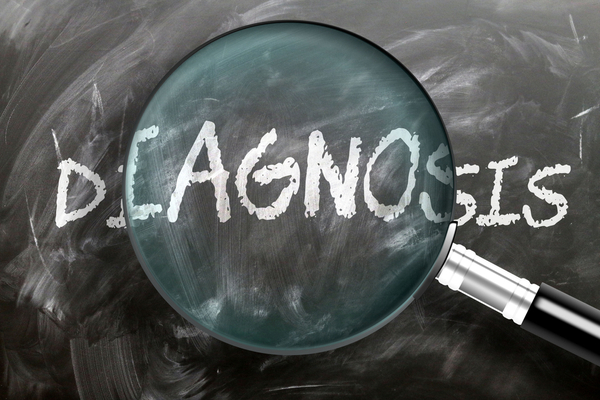- Symptoms:
- Include discharge from and irritation of penis or vagina and labia, possible sores or bumps
- Importance of diagnosis:
- Can prevent complications of pelvis and other organs, prevent spread to others with sex
- Treatment:
- Often with antibiotics, antivirals or referral to a specialist
Urgent Care Centers Can Diagnose Sexually Transmitted Infection or Disease (STI/STD)
If you have a sexually transmitted infection, urgent care centers can provide you with prompt, discreet, effective treatment. Here’s how to recognize whether you might have an STI (also called an STD) and how an urgent care facility can help to diagnose and aim to remedy it.
What is an STI and what are the common ones?
These are infections that are transmitted via oral, vaginal and anal sex. They include but aren’t limited to:
1. Gonorrhea – Gonorrhea, also called “the clap,” is a bacterial infection. It easily passes from one person to another through unprotected vaginal, anal, or oral sex.
2. Chlamydia – Chlamydia is a bacterial infection that is usually contracted through unprotected sex, or through non-penetrating genital contact. If you get tainted semen or vaginal fluid in your eye, it can cause an infection of your eye as well.
3. Syphilis – Syphilis is a bacterial infection spread through contact with a tainted sore during unprotected vaginal, anal or oral sex. Syphilis can also develop via shared needles.
4. Trichomoniasis – Trichomoniasis is a sexually transmitted disease caused by a parasite and is transmitted via unprotected sex. In women, this parasite invades the vagina and the urethra. In men, it affects the urethra, the prostate or the head of the penis.
5. Genital Warts – Genital warts are growths caused by a virus. When women have genital warts, they can grow on the vulva and anus, as well as inside the vaginal walls and cervix. In men, they may attach themselves to the scrotum, anus or the penis shaft or tip.
6. Genital Herpes – A viral infection, genital herpes spreads through sexual contact. It causes painful sores that may open and ooze liquid. These sores multiply very easily and may appear on a woman’s vagina or anus, and on a man’s penis, scrotum or anus.
7. HIV/AIDS – A viral infection that spreads through sexual contact and less commonly through passage of other bodily fluids. The symptoms of a new infection of HIV can be similar to the flu (sore throat, muscle aches, swollen glands, night sweats), The most serious stage of HIV is called AIDS, which can lead to life threatening illnesses due to the CD4 blood cell counts being so low.
As you can see there are many different STIs. What are the symptoms and findings of these common STIs?
If you have a sexually transmitted infection, or suspect you do, with any of the following symptoms, go to the nearest urgent care facility as soon as possible. Continuing to have unprotected sex can spread your infection to other partners. Plus let’s face it that examination of these parts of your body yourself is not particularly easy! This makes it difficult for you to determine what the problem is, if it is serious, and if it is contagious to others. Don’t let embarrassment or shame hold you back from getting the help you need.
Many of these STIs have very similar symptoms, or have some overlap of symptoms of common illnesses, such as the flu. In addition, STIs can affect various parts of the body in an adverse way (for example: your eyes can be affected in many of these conditions). This is why it’s vital to go to an urgent care as soon as possible, so that a medical professional can do a full exam and lab testing if necessary to pinpoint your ailment and offer prompt treatment to help you feel better. Here are some of the specific findings with several of the more common STIs:
1. Gonorrhea
- Thick white, green or yellow discharge from the vagina or penis
- Burning sensation during urination
- Pelvic pain in women
- Painful, swollen testicles
2. Chlamydia
- Discharge from the vagina or penis
- Testicular pain
- Painful urination
- Lower abdominal pain
3. Syphilis
- Small, painless sore on the lips, vagina, penis, anus, lips or tongue
- Fever
- Aches
- Swollen lymph nodes
4. Trichomoniasis
- Discharge from the penis or vagina
- Vaginal itching, irritation or foul odor
- Painful urination
- Frequent urge to urinate
5. Genital Warts
- Anal or genital bleeding
- Small bumps on the genitals that resemble cauliflower
- Itching or burning when you urinate
- Fatigue
6. Genital Herpes
- Red bumps, or blisters on and around the genitals
- Painful urination
- Flu-like symptoms
- Swollen lymph glands
7. HIV/AIDS
- Flu-like symptoms
- Muscle fatigue and achiness
- Night sweats
- Swollen lymph glands
- Eye manifestations in the retina or back of the eye
What can happen if I ignore my concerns of STI?
Here are just a few examples. The risk of spreading it to sexual partners is a big concern as well.
- Untreated syphilis can spiral into paralysis, blindness and dementia. It can ravage the nervous system and organs.
- Untreated gonorrhea can increase the risk of contracting HIV or becoming infertile. It can also invade the joints and blood and cause corneal ulceration which can lead to blindness
- Untreated trichomoniasis raises the risk of HIV infection.
- Untreated chlamydia can cause pelvic inflammatory disease.
What are Treatments for STIs?
Some STI’s are curable, while others need maintenance treatments.
1. Gonorrhea
Gonorrhea typically clears up quickly and easily with one antibiotic injection. However, there are some varieties of gonorrhea that are antibiotic-resistant. In this case, an oral antibiotic is administered for seven days, or two antibiotics are administered together for seven days.
2. Chlamydia
Luckily, chlamydia can be resolved very quickly with antibiotics. However, medication that thwarts the infection won’t repair any permanent damage caused by the chlamydia bacteria.
3. Syphilis
An injection of penicillin can easily cure syphilis, if it’s caught in the early stages. Syphilis that’s lasted more than two years is treated with one injection a week for three weeks. If it’s gotten so serious that it’s causing severe harm, such as damaging the brain, antibiotic shots will be administered on a daily basis. Findings of untreated syphilis can be seen over a lifetime.
4. Trichomoniasis
If caught early, trichomoniasis is easily cured with prescription antibiotics, which are taken twice a day for five to seven days.
5. Genital Warts
Warts often return after treatment, because there is no remedy for the virus that causes them. However, creams are available to deal with the warts themselves, as well as procedures for warts that are large or that resist medication.
6. Genital Herpes
Unfortunately, there is no cure for genital herpes. However, this sexually transmitted disease can be managed with antiviral medications. These treatments can stop an outbreak and help prevent a future one to keep you symptom-free longer and diminish an outbreak’s severity when it does occur.
7. HIV/AIDS
Unfortunately, there is no cure or vaccine at this time for HIV/AIDS. There are medications that can minimize your symptoms and prolong your life. These medications often decrease the amount of virus that is in your body. All of these treatments require management by an infectious disease specialist.
The Takeaway
If you have an STI/STD, an urgent care facility can help you on any day, at any time. It’s a great resource for people whose primary physician isn’t available or those who prefer a more discreet, private setting. Don’t feel embarrassed or self-conscious about your STD, or delay going to an urgent care, where immediate steps will be taken to get you on the road to feeling better.


